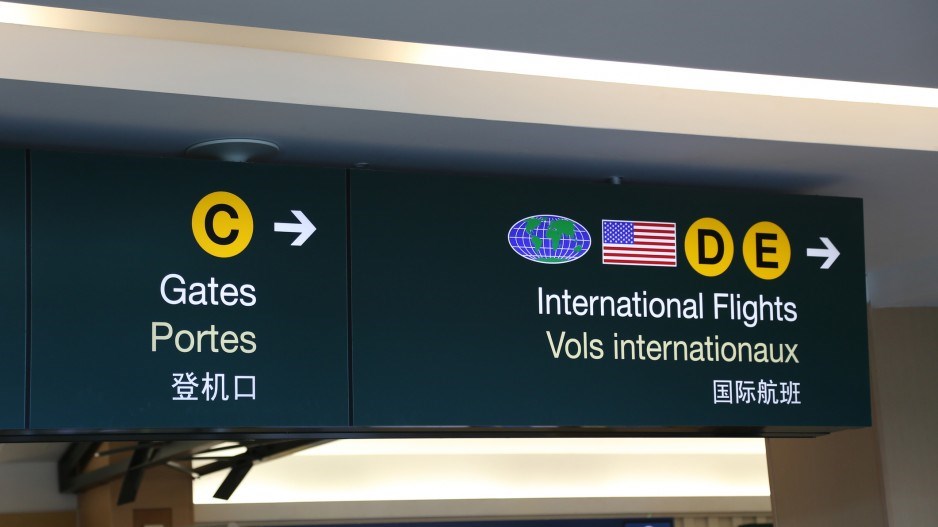As concerns over a new COVID-19 variant known as Omicron rattles markets Friday, Ottawa is banning the entry of foreign nationals who’ve spent any time in southern Africa – where the variant was first identified – over the past two weeks.
Health Minister Jean-Yves Duclos also urged Friday that those who’ve arrived from the region within the last 14 days to quarantine, get tested for COVID-19 and wait for a negative test result before leaving quarantine.
He said there is a maximum daily average of 50 people arriving in Canada from the southern Africa region encompassing seven countries.
The Dow had sunk by more than 900 points and the S&P/TSX Composite Index was down more than 480 points as of 11 a.m. Friday as other countries began tightening their borders amid concerns over the variant.
“Setting aside a horror show in which [Omicron] spreads rapidly and is uncontrolled by vaccination, how does all this impact our outlook?” CIBC chief economist Avery Shenfield said in a note published just prior to Ottawa’s announcement.
“The need for continued public health measures, and for third doses, will mean a longer wait to end the remaining dent to services activity, but also a longer wait to heal the inflation and goods production shortfalls tied to COVID-related worker absenteeism.”
Dr. Theresa Tam, Canada’s chief public health officer, said during Friday’s briefing that no cases of this variant have been identified in Canada so far.
“We know very little about this variant right now, including how transmissible it is, and whether it increases severity of illness or what the impact is on the [COVID-19 vaccines],” she said.
The Omicron variant has raised concerns because of the high number of mutations within the virus’ spike protein, which affects how it attaches to cells.
Anita Huberman, CEO of the Surrey Board of Trade, said her organization supports the federal government’s decision to ban entry for non-Canadian travellers.
“Canadians also need to be updated immediately on any new developments related to this COVID-19 variant and clarify if current vaccinations will mitigate spread if the new variant appears in Canada,” she said in a statement.
“In order to keep businesses open in Canada, these measures must be taken. We also urge Canada and other world governments to support efforts to fully vaccinate people of all countries to limit the spread and mutation of the COVID virus.”
There are no direct flights between Canada and the part of the world that includes South Africa, Zimbabwe and Mozambique.
Transportation Minister Omar Alghabra said Canadians returning home from any of the countries in question will need to get a negative COVID-19 test in the country they’re transiting through before being allowed to arrive home.
Canadians will then need to get tested again upon arrival and go into a two-week quarantine. They’ll need to be tested again on the eighth day of quarantine.
Meanwhile, Health Canada is issuing a travel advisory for the African countries where the Omicron variant has just emerged.
Countries affected by the travel ban:
South Africa
Lesotho
Botswana
Zimbabwe
Mozambique
Namibia
Eswatini




